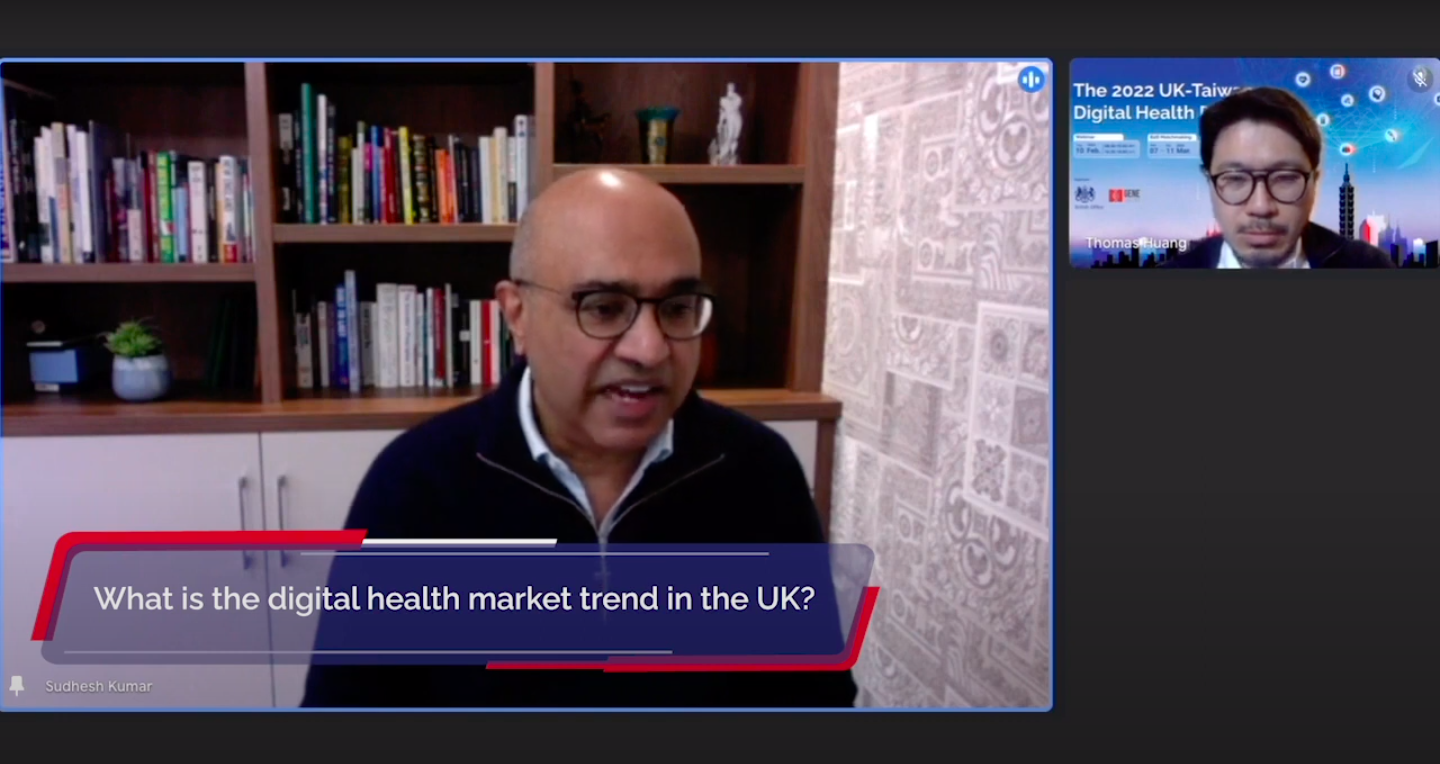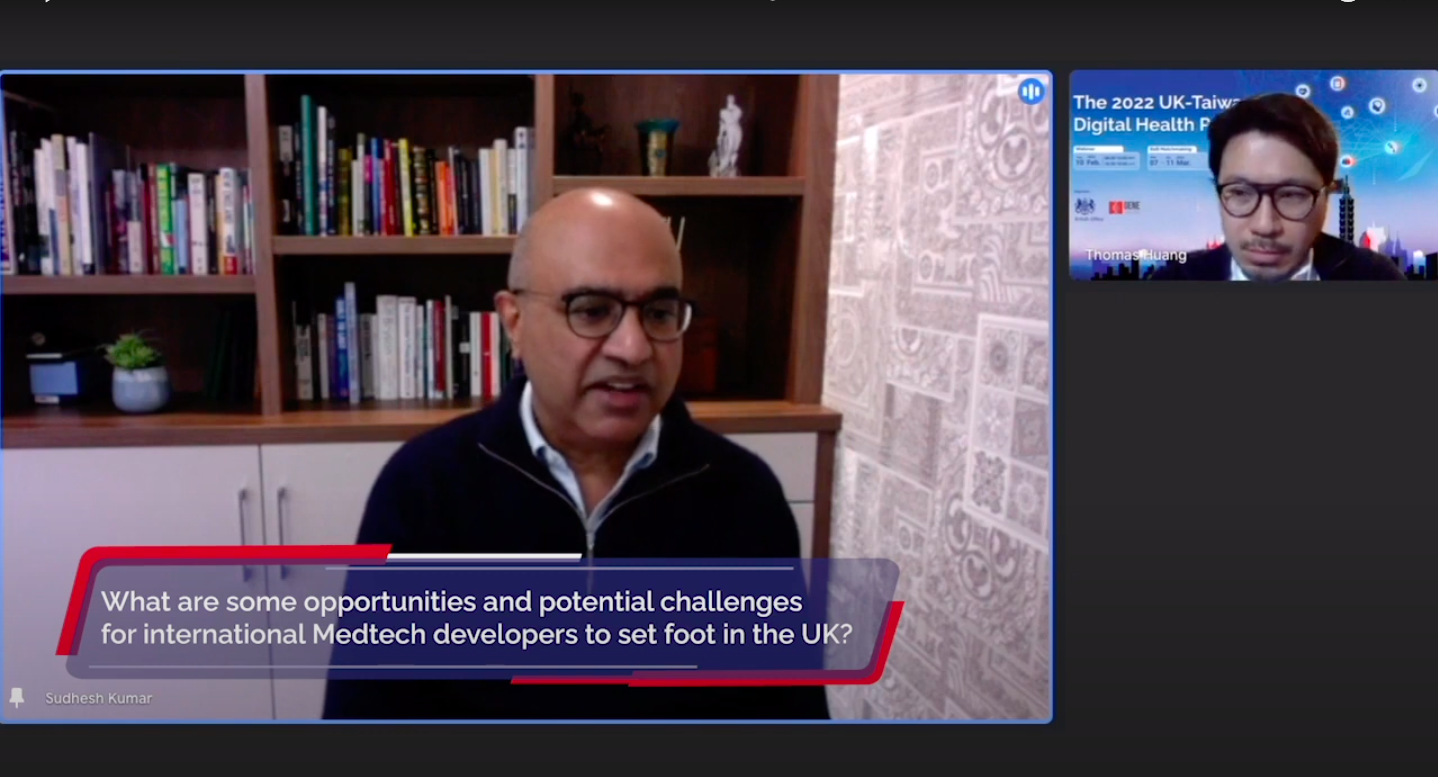How to Break into the Digital Health Market in the UK – An Interview with Professor Sudhesh Kumar
Launched in 1948, the National Health Service is the publicly funded healthcare service in the UK. Consistently ranked as the institution that makes people proudest to be British, the NHS offers a wide array of services to residents of the UK, with most free of charge at the point of use. NHS is now entering the digital health market to overcome the existing challenges.
The NHS has suffered from issues such as long waiting times in some areas such as mental healthcare, electronic systems that do not communicate well with each other, and a lack of transparency over patient data use. The NHS has been trying to change the status quo by introducing a number of programs to improve digital healthcare and address these issues.
GeneOnline recently had the pleasure to interview Professor Sudhesh Kumar, Dean of Medicine, Warwick Medical School and the Vice Chair of the NHS Digital Board. Prof. Kumar carries with him 24 years of experience as a clinical endocrinologist. He has published over 240 papers and 6 books on the medical technology that has transformed the landscape for obesity and diabetes care.
On the Board of NHS Digital, Prof. Kumar leads big data, the research sector, clinical informatics, MedTech and life sciences strategy. In the interview, he discussed digital health market trends in the UK, opportunities and challenges for potential MedTech developers, and the UK Biobank.
What Is the Digital Health Market Trend in the UK?
“So I think for the number of years there’s been an aspiration in the national health service to dramatically increase the uptake of digital health technology in the national health service,” said Kumar.
Big projects, such as Paperless 2020, aimed to make the healthcare system in England paperless by 2020. But uptake was “very patchy”, said Kumar. Some hospitals rapidly digitized or adopted the new technologies, but generally, the use of such technologies was slow across the nation.
“Then the COVID-19 pandemic came along. All of a sudden, the healthcare system advanced faster than anyone could anticipate.”
The tech also needed to evolve quickly. Genomics UK started out with ambitions for whole-genome sequencing to better understand diseases. It grew rapidly but required a lot of data from patients’ electronic health records to interpret the genomics data. “And we didn’t have infrastructure and systems before to be able to deal with collecting high-quality patient data to link to genomics data,” said Kumar.

Prof Sudhesh Kumar, NHS Digital and Thomas Huang, CEO, GeneOnline
Then the COVID-19 pandemic came along. All of a sudden, the healthcare system advanced faster than anyone could anticipate.
One of the goals of digitization was to boost virtual patient-doctor consultations by 30% over the next decade. During the pandemic, the change happened almost overnight. A “massive amount of consultations just went online,” Kumar exclaimed. Attitudes of both clinicians and patients changed to enable rapid adoption.
The first digital health market rend would be the rapid adoption of digital technologies in response to a healthcare crisis, Kumar said.
“The National Healthcare Service in the past has always been a fragmented system. Even though we called it the single NHS, it’s actually a collection of a large number of organizations.”
The second trend, also kickstarted by the pandemic, was the deployment of a single national platform, mainly created by NHS Digital.
“The National Healthcare Service in the past has always been a fragmented system. Even though we called it the single NHS, it’s actually a collection of a large number of organizations,” said Kumar. “The whole idea of having a single national healthcare platform is that wherever you are in the UK you can access the same platform.”
Because COVID-19 represented a need to coordinate, the NHS began consolidating all the systems into one platform. An example is the COVID-19 vaccination system. For different applications, the NHS has all sorts of apps approved for use, and they may come from many different suppliers.
People eventually realized all these apps and systems should be able to talk with one another. The authorities made policies to ensure apps have common applications to the API for free data flow, regardless of supplier.
Finally, much more infrastructure investment is needed in the UK, said Kumar. A highly digitized NHS needs to manage cybersecurity risks and to make sure both technology and data governance are in place to keep the system secure.
Kumar concluded that there is now a much greater appetite to adopt digital health technologies in the UK than in previous times.
What are Some Opportunities and Potential Challenges for International Medtech Developers to Set foot in the UK?
The UK is well-known for its medical research and innovations. The nation has also provided a well-structured environment for digital health organizations and startups to develop medical technology. It is positive and exciting to have a system that is looking for novel innovations that patients can use more easily (e.g. accessing healthcare remotely), improves the quality of healthcare and cuts costs, said Kumar.
The NHSX is an initiative established in the UK to improve digital healthcare. It has launched a program called “What Good Looks Like”, which provides guidance for health and care leaders to transform their services for the better.
An international vendor would need to consider key principles and match what the NHS is expecting, such as having an OpenAPI interface. They would also need to maintain trust and privacy – keeping people’s data safe.

Prof Sudhesh Kumar, NHS Digital and Thomas Huang, CEO, GeneOnline
For the next decade, the NHS will promote “technology in the hands of the patients, more citizen-held technology”, said Kumar. For example, a person with high blood pressure would be able to save costs by recording their blood pressure at home and forwarding their results to the clinic.
The UK’s MHRA (Medicines & Healthcare products Regulatory Agency) regulates healthcare devices, and recently “adaptive licensing” has emerged as a new regulatory mechanism.
Adaptive licensing covers digitized products and bypasses the need for a long product trial that may take years. As the products are digital, developers could obtain a marketing license from the MHRA. The regulatory body will monitor the product to see how it works.
“That’s a big benefit for vendors and a great way to come, do the required testing and development, then implement and evaluate them in use in real-world settings early on during the product life cycle,” said Kumar.
Genomics is another area of interest. Thanks to Genomics UK, there is a wealth of patient data that will enable precision medicine and diagnostics, said Kumar.
The UK has founded Innovate UK centers for digital radiology and pathology, one of the Digital Pathology Centres is co-hosted by the University of Warwick. AI-based diagnostics is used in the centers, which help to improve diagnostic accuracy, speed up diagnoses and reduce errors.
“It is really a great opportunity for vendors to come in with innovations and interact with NHS Digital, other agencies, and actually compete for businesses effectively in the UK system,” said Kumar.
Are There Any Examples of Services or Platforms that Utilize UK Biobank Resources?
The UK Biobank Database is a significant part of digital health and paves the way for new applications for genomic medicine. UK Biobank is principally a research platform that holds data under consent from participants. It is mainly used for researching many topics such as COVID-19 and is not intended as a clinical service. It is a significant part of digital health market in UK.
In the UK, there are many ways to participate in research. One would be through the UK Biobank with consented patients, the other would be to use routinely collected health data, which is not subjected to consent but is anonymised. The NHS offers a “data access request service”, which can be accessed and used for research projects.
There are two influential reviews that are relevant, the first the ‘Wade-Gery review’ concerns more joined-up working by central NHS bodies so they enable a step-change in continuous improvement of NHS services. NHS is integrating its services, making it so patient data can be collected anonymously and used to improve patient safety.
A second review has not been published but will detail how health data can be collected and used securely without compromising privacy for more broad applications including for research and innovation.
Today, healthcare is done in large teams. Diseases we thought were one, such as diabetes and cancer, may come in different types and classifications. Response to treatment will vary across types, so we need to understand the underlying cause of the disease. To understand and treat these better, there is a need for more data.
The use of genomics data, routinely collected data and pathological data could also advance precision medicine, to identify the best course of treatment on an individual basis. That’s why we need the technology to generate, collect and analyze the data, concluded Kumar.
Watch the full interview here.
©www.geneonline.com All rights reserved. Collaborate with us: service@geneonlineasia.com








